We provide valuable insights that allow you to compare regulated forex brokers by trading instruments, spreads, leverage, trading platform, initial capital requirements, payment methods and supported languages. Our team of expert traders has tested multiple forex brokers to compile a ranking of the best performers. Each broker has received an overall quality score based on several factors, including Trustpilot ratings, trading costs, order execution quality, regulatory compliance track record and more.
 Plus500 USThis content applies only to Plus500 US and clients from the United States. Trading futures involves the risk of loss.
Plus500 USThis content applies only to Plus500 US and clients from the United States. Trading futures involves the risk of loss. eToro61% of retail investor accounts lose money
eToro61% of retail investor accounts lose money Fusion Markets74-89% of retail's CFD accounts lose money
Fusion Markets74-89% of retail's CFD accounts lose money FP Markets73.85% of retail investor accounts lose money
FP Markets73.85% of retail investor accounts lose money Global Prime74-89% of retail CFD accounts lose money
Global Prime74-89% of retail CFD accounts lose money Pepperstone75.5% of retail investor accounts lose money
Pepperstone75.5% of retail investor accounts lose money
Below you can find a list of all regulated forex brokers
| Broker | Trading Platforms | Licences | |
|---|---|---|---|
1 | cTrader, IRESS, MetaTrader 4, MetaTrader 5, TradingView | CySEC (Cyprus, # 371/18), FSAS (Seychelles, # SD130), FSCA (South Africa, # 50926), SCB (Bahamas), ASIC (Australia, # 286354), FSCM (Mauritius, # GB21026264) | |
FP Markets FX Spreads vs Industry AverageThere might be additional fees corresponding with this account type. ** Last update - 2025-11-26 11:52:23 UTC | |||
2 | cTrader, MetaTrader 4, MetaTrader 5 | FSCM (Mauritius, # GB25204316) | |
FPM Trading FX Spreads vs Industry AverageThere might be additional fees corresponding with this account type. ** Last update - 2025-11-05 09:31:14 UTC | |||
3 | cTrader, DupliTrade, Fusion+ Copy Trading, MetaFX, MetaTrader 4, MetaTrader 5, TradingView | FSAS (Seychelles, # SD096), VFSC (Vanuatu, # 40256), ASIC (Australia, # 385620) | |
Fusion Markets FX Spreads vs Industry AverageThere might be additional fees corresponding with this account type. ** Last update - 2025-12-01 09:16:48 UTC | |||
4 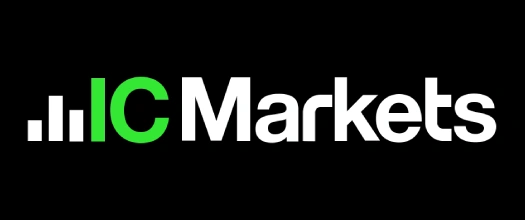 IC Markets IC Markets | cTrader, IC Social, MetaTrader 4, MetaTrader 5, ZuluTrade | CySEC (Cyprus, # 362/18), FSAS (Seychelles, # SD018), SCB (Bahamas, # SIA-F214), ASIC (Australia, # 335692), CMA (Kenya, # 199) | |
IC Markets FX Spreads vs Industry AverageThere might be additional fees corresponding with this account type. ** Last update - 2025-05-30 08:33:25 UTC | |||
5 | cTrader, MetaTrader 4, MetaTrader 5, TradingView, ZuluTrade, BlackBull CopyTrader, BlackBull Invest, BlackBull Shares, BlackBull Trade | FMA (New Zealand, # FSP403326), FSAS (Seychelles, # SD045) | |
BlackBull Markets FX Spreads vs Industry AverageThere might be additional fees corresponding with this account type. ** Last update - 2025-05-20 14:08:12 UTC | |||
6 | AvaOptions, DupliTrade, AvaSocial, MetaTrader 4, MetaTrader 5, AvaTadeGO, Proprietary Web, ZuluTrade | CIRO (Canada), CySEC (Cyprus, # 347/17), FRSA (United Arab Emirates, # 190018), FFAJ (Japan, # 1574), FSCA (South Africa, # 45984), FSRA (Canada, # 190018), ISA (Israel, # 514666577), JFSA (Japan, # 1662), ASIC (Australia, # 406684), BVIFSC (Virgin Islands, British, # SIBA/L/13/1049), CBI (Ireland, # C53877) | |
AvaTrade FX Spreads vs Industry AverageThere might be additional fees corresponding with this account type. ** Last update - 2025-11-20 08:37:45 UTC | |||
7 | MetaTrader 4 | VFSC (Vanuatu, # 40256), ASIC (Australia, # 385620) | |
Global Prime FX Spreads vs Industry AverageThere might be additional fees corresponding with this account type. ** Last update - 2025-12-01 18:00:21 UTC | |||
8 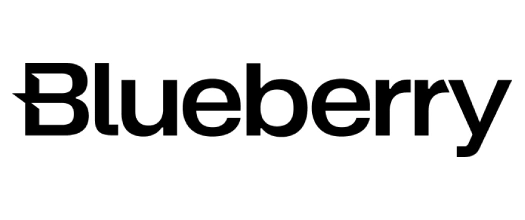 Blueberry Markets Blueberry Markets | cTrader, MetaTrader 4, MetaTrader 5, TradingView, Blueberry X, WebTrader | VFSC (Vanuatu, # 303561), ASIC (Australia, # 1245440), FSCM (Mauritius) | |
Blueberry Markets FX Spreads vs Industry AverageThere might be additional fees corresponding with this account type. ** Last update - 2025-05-21 11:28:13 UTC | |||
9 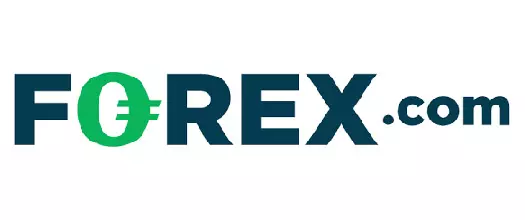 Forex.com Forex.com | MetaTrader 4, MetaTrader 5, Forex.com | CFTC (United States, # 0339826), CIMA (Cayman Islands, # 25033), CIRO (Canada, # StoneX Financial (Canada) Inc.), CySEC (Cyprus, # 400/21), FCA (United Kingdom, # 446717), JFSA (Japan, # 2010401047199), MAS (Singapore, # StoneX Financial Pte. Ltd.) | |
Forex.com FX Spreads vs Industry Average | |||
10 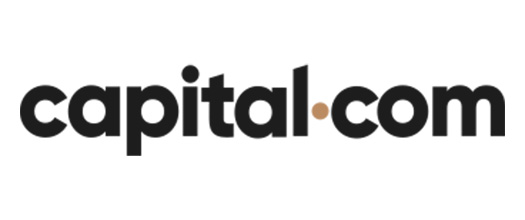 Capital.com Capital.com | MetaTrader 4, Proprietary Mobile, Proprietary Web, TradingView | CySEC (Cyprus, # 319/17), FCA (United Kingdom, # 793714), SCB (Bahamas, # SIA-F245), ASIC (Australia, # 513393), ESCA (United Arab Emirates, # 20200000176) | |
Capital.com FX Spreads vs Industry AverageThere might be additional fees corresponding with this account type. ** Last update - 2025-12-01 18:27:19 UTC | |||
11 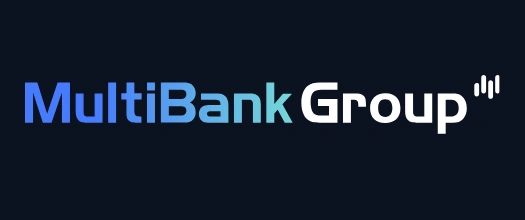 MultiBank Group MultiBank Group | MetaTrader 4, MetaTrader 5, MultiBank-Plus | CIMA (Cayman Islands, # 1811316), CySEC (Cyprus, # 430/23), FSAS (Seychelles, # C8424231), MAS (Singapore, # CMS101174), VFSC (Vanuatu, # 700443), ASIC (Australia, # 416279), ESCA (United Arab Emirates, # 20200000031), VARA (United Arab Emirates, # VL/24/06/001), FSCM (Mauritius, # C185514), BaFin (Germany, # 73406), FMAA (Austria, # 491129z), BVIFSC (Virgin Islands, British, # SIBA/L/14/1068) | |
MultiBank Group FX Spreads vs Industry AverageThere might be additional fees corresponding with this account type. ** Last update - 2025-05-21 10:09:55 UTC | |||
12 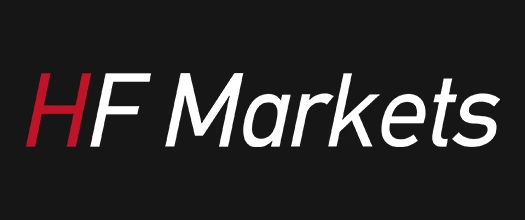 HFM HFM | MetaTrader 4, MetaTrader 5, Proprietary Mobile | CMA (Saudi Arabia, # 155), CySEC (Cyprus, # 183/12), DFSA (United Arab Emirates, # F004885), FCA (United Kingdom, # 801701), FSAS (Seychelles, # SD015), SVGFSA (Saint Vincent and the Grenadines, # 22747 IBC 2015), FSCA (South Africa, # 46632), FSCM (Mauritius, # C110008214) | |
HFM FX Spreads vs Industry AverageThere might be additional fees corresponding with this account type. ** Last update - 2025-12-01 23:10:53 UTC | |||
13 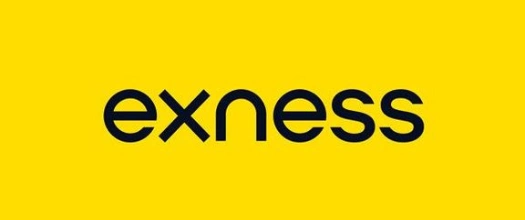 Exness Exness | MetaTrader 4, MetaTrader 5, Proprietary Mobile | CMA (Saudi Arabia, # 162), CySEC (Cyprus, # 178/12), FCA (United Kingdom, # 730729), FSAS (Seychelles, # SD025), FSCA (South Africa, # 51024), JSC (Jordan, # 51905), FSCM (Mauritius, # GB20025294), CBCS (Curaçao, # 0003LSI), BVIFSC (Virgin Islands, British, # SIBA/L/20/1133) | |
Exness FX Spreads vs Industry AverageThere might be additional fees corresponding with this account type. ** Last update - 2025-05-28 11:10:45 UTC | |||
14 | MetaTrader 4, MetaTrader 5, Proprietary Web, ProTrader, TradingView, V-Social | CIMA (Cayman Islands, # 1383491), FCA (United Kingdom, # 590299), FSCA (South Africa, # 51268), VFSC (Vanuatu, # 700271), ASIC (Australia, # 428901) | |
Vantage FX Spreads vs Industry AverageThere might be additional fees corresponding with this account type. ** Last update - 2025-11-04 08:54:33 UTC | |||
15 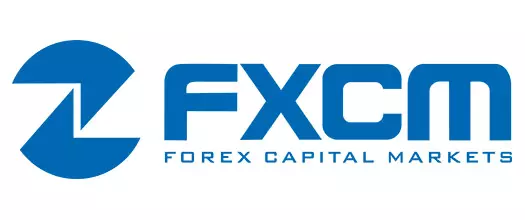 FXCM FXCM | MetaTrader 4, TradingView, ZuluTrade, Trading Station | CySEC (Cyprus, # 392/20), FCA (United Kingdom, # 217689), SVGFSA (Saint Vincent and the Grenadines, # 1776), FSCA (South Africa, # 46534), ISA (Israel, # 515234623), ASIC (Australia, # 309763) | |
FXCM FX Spreads vs Industry AverageThere might be additional fees corresponding with this account type. ** Last update - 2025-11-27 00:20:04 UTC | |||
16 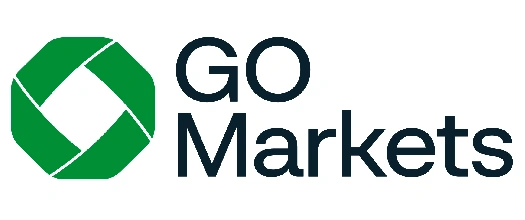 GO Markets GO Markets | cTrader, MetaTrader 4, MetaTrader 5, TradingView | CySEC (Cyprus, # 322/17), FSAS (Seychelles, # SD043), SVGFSA (Saint Vincent and the Grenadines, # 332), ASIC (Australia, # 254963), FSCM (Mauritius, # 19024896) | |
GO Markets FX Spreads vs Industry AverageThere might be additional fees corresponding with this account type. ** Last update - 2025-12-02 01:24:58 UTC | |||
17 | MetaTrader 4, MetaTrader 5, Proprietary Mobile, Proprietary Web | CySEC (Cyprus, # 388/20), DFSA (United Arab Emirates, # F004356), FCA (United Kingdom, # 684312), FSAS (Seychelles, # SD108), SCB (Bahamas, # SIA-F217), ASIC (Australia, # 414530), BaFin (Germany, # 151148), CMA (Kenya, # 128) | |
Pepperstone FX Spreads vs Industry AverageThere might be additional fees corresponding with this account type. ** Last update - 2025-12-02 10:36:55 UTC | |||
18  Trade Nation Trade Nation | MetaTrader 4, TradingView, TN Trader, TradeCopier | FCA (United Kingdom, # 525164), FSAS (Seychelles, # SD150), FSCA (South Africa, # 49846), SCB (Bahamas, # SIA-F216), ASIC (Australia, # 422661) | |
Trade Nation FX Spreads vs Industry AverageThere might be additional fees corresponding with this account type. ** Last update - 2025-05-21 09:02:51 UTC | |||
19 | MetaTrader 4, MetaTrader 5 | SVGFSA (Saint Vincent and the Grenadines, # 149) | |
Switch Markets FX Spreads vs Industry AverageThere might be additional fees corresponding with this account type. ** Last update - 2025-05-21 11:41:03 UTC | |||
20 | CMC Next Generation, MetaTrader 4, TradingView | CIRO (Canada), DFSA (United Arab Emirates, # F002740), FCA (United Kingdom, # 173730), FMA (New Zealand, # FSP41187), MAS (Singapore, # 200605050E), ASIC (Australia, # 238054), BaFin (Germany, # 154814), BMA (Bermuda) | |
CMC Markets FX Spreads vs Industry AverageThere might be additional fees corresponding with this account type. ** Last update - 2025-11-25 12:29:04 UTC | |||
21 | MetaTrader 5 | CySEC (Cyprus, # 331/17), FSCA (South Africa, # 50885), IFSC (Belize, # 000102/31), ASIC (Australia, # 426359) | |
FBS FX Spreads vs Industry AverageThere might be additional fees corresponding with this account type. ** Last update - 2025-12-01 18:02:56 UTC | |||
22 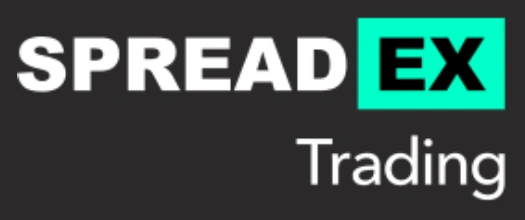 Spreadex Spreadex | Proprietary Mobile, Proprietary Web, TradingView | FCA (United Kingdom, # 190941) | |
Spreadex FX Spreads vs Industry AverageThere might be additional fees corresponding with this account type. ** Last update - 2025-11-05 07:18:28 UTC | |||
23 | MetaTrader 5, Proprietary Mobile, Proprietary Web | FSAS (Seychelles, # SD162), FSCA (South Africa, # 45697), FSCM (Mauritius, # GB24203383), BCR (El Salvador, # 66d10393e8a00a3181b8e457) | |
PrimeXBT FX Spreads vs Industry AverageThere might be additional fees corresponding with this account type. ** Last update - 2025-11-05 10:22:49 UTC | |||
24 | eToro App, eToro CopyTrader, eToro Investing | CySEC (Cyprus, # 109/10), FCA (United Kingdom, # 583263), FRSA (United Arab Emirates, # 220073), FinCEN (United States, # 31000204884179), FINRA (United States, # 298361), FSAS (Seychelles, # SD076), GFSC (Gibraltar, # 1333B), AMF (France, # E2022-038), MFSA (Malta, # C97952), SEC (United States, # 0001753042), ASIC (Australia, # 491139) | |
eToro FX Spreads vs Industry AverageThere might be additional fees corresponding with this account type. ** Last update - 2025-05-20 07:27:28 UTC | |||
25 | MetaTrader 4, Axi Copy Trading, Axi Mobile | CySEC (Cyprus, # 433/23), DFSA (United Arab Emirates, # F003742), FCA (United Kingdom, # 466201), FMA (New Zealand, # 518226), SVGFSA (Saint Vincent and the Grenadines, # 25417), ASIC (Australia, # 318232) | |
Axi FX Spreads vs Industry AverageThere might be additional fees corresponding with this account type. ** Last update - 2025-05-21 11:43:59 UTC | |||
26 | Proprietary Mobile, Proprietary Web | CFTC (United States, # 0001398), CySEC (Cyprus, # 250/14), DFSA (United Arab Emirates, # F005651), EFSA (Estonia, # 4.1-1/18), FCA (United Kingdom, # 509909), FFAJ (Japan, # 2010001092422), FMA (New Zealand, # 486026), FSA (Japan, # 2010001092422), FSAS (Seychelles, # SD039), FSCA (South Africa, # 47546), MAS (Singapore, # CMS100648), SCB (Bahamas, # SIA-F250), ASIC (Australia, # 417727) | |
Plus500 FX Spreads vs Industry AverageThere might be additional fees corresponding with this account type. ** Last update - 2025-05-20 07:49:34 UTC | |||
27 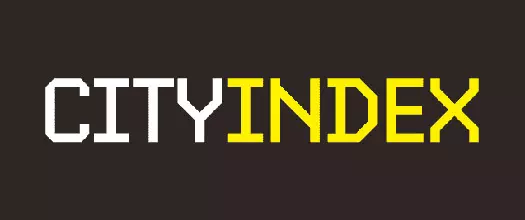 City Index City Index | MetaTrader 4, Proprietary Mobile, Proprietary Web, TradingView | CIRO (Canada), DFSA (United Arab Emirates, # F000542), FCA (United Kingdom, # 446717), JFSA (Japan, # 2010401047199), MAS (Singapore, # 201130598R), HKSFC (Hong Kong, # BCQ152), ASIC (Australia, # 345646) | |
City Index FX Spreads vs Industry AverageThere might be additional fees corresponding with this account type. ** Last update - 2025-05-21 08:47:57 UTC | |||
28 | MetaTrader 4, MetaTrader 5, TradingView | CySEC (Cyprus, # 246/14), FCA (United Kingdom, # 921296), SCB (Bahamas, # SIA-F220), ASIC (Australia, # 391441) | |
Eightcap FX Spreads vs Industry AverageThere might be additional fees corresponding with this account type. ** Last update - 2025-05-12 11:16:44 UTC | |||
29 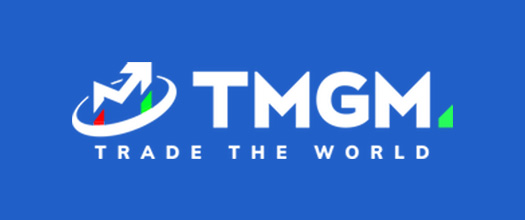 TMGM TMGM | MetaTrader 4, MetaTrader 5, Proprietary Mobile | FMA (New Zealand, # 569807), FSAS (Seychelles, # SD224), VFSC (Vanuatu, # 40356), ASIC (Australia, # 436416), FSCM (Mauritius, # GB22201012), CMA (Kenya, # 219) | |
TMGM FX Spreads vs Industry AverageThere might be additional fees corresponding with this account type. ** Last update - 2025-12-02 01:41:54 UTC | |||
30 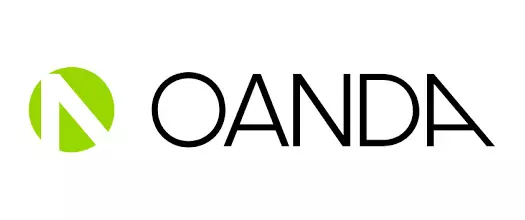 Oanda Oanda | MetaTrader 4, Oanda Web, TradingView | CFTC (United States, # 0325821), FCA (United Kingdom, # 542574), JFSA (Japan, # 4010001122945), KNF (Poland, # KPWiG-4021-54-1/2004), MAS (Singapore), ASIC (Australia, # 000412981), BVIFSC (Virgin Islands, British, # SIBA/L/20/1130) | |
Oanda FX Spreads vs Industry AverageThere might be additional fees corresponding with this account type. ** Last update - 2025-11-25 12:11:39 UTC | |||
31 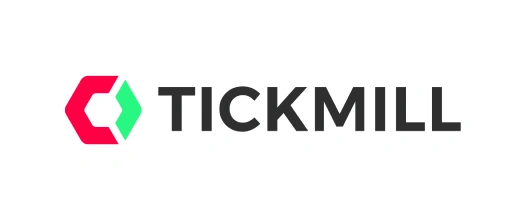 Tickmill Tickmill | MetaTrader 4, MetaTrader 5, Proprietary Mobile, Proprietary Web | CySEC (Cyprus, # 278/15), DFSA (United Arab Emirates, # F007663), FCA (United Kingdom, # 717270), FSAS (Seychelles, # SD008), FSCA (South Africa, # FSP 49464) | |
Tickmill FX Spreads vs Industry AverageThere might be additional fees corresponding with this account type. ** Last update - 2025-12-01 18:04:17 UTC | |||
32 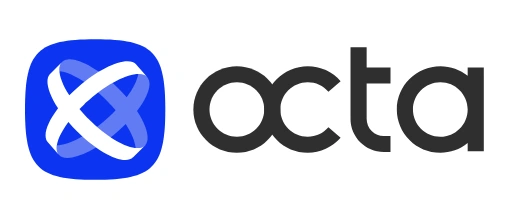 OctaFX OctaFX | MetaTrader 5, Proprietary Mobile, Proprietary Web | CySEC (Cyprus, # 372/18), FSCA (South Africa, # 51913), ISA (Comoros, # T2023320) | |
OctaFX FX Spreads vs Industry AverageThere might be additional fees corresponding with this account type. ** Last update - 2025-11-19 19:16:52 UTC | |||
33 | cTrader, FxPro Edge, MetaTrader 4, MetaTrader 5 | FCA (United Kingdom, # 509956), FSAS (Seychelles, # SD120), FSCA (South Africa, # 45052), SCB (Bahamas, # SIA-F184) | |
FxPro FX Spreads vs Industry AverageThere might be additional fees corresponding with this account type. ** Last update - 2025-12-01 17:56:20 UTC | |||
34 | MetaTrader 4, MetaTrader 5, Proprietary Mobile, Proprietary Web, TradingView | CySEC (Cyprus, # 079/07), FSAS (Seychelles, # SD056), FSCA (South Africa, # 54018), ASIC (Australia, # 246566), BVIFSC (Virgin Islands, British, # SIBA/L/20/1135) | |
easyMarkets FX Spreads vs Industry AverageThere might be additional fees corresponding with this account type. ** Last update - 2025-05-21 08:18:23 UTC | |||
35 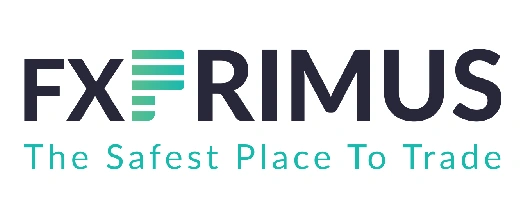 FX Primus FX Primus | MetaTrader 4, MetaTrader 5 | VFSC (Vanuatu, # 14595) | |
FX Primus FX Spreads vs Industry AverageThere might be additional fees corresponding with this account type. ** Last update - 2025-05-21 10:01:26 UTC | |||
36 | L2 Dealer, MetaTrader 4, Proprietary Web, ProRealTime, TradingView | CFTC (United States, # 0509630), DFSA (United Arab Emirates, # F001780), FCA (United Kingdom, # 944492), FFAJ (Japan), FINMA (Switzerland, # IG Bank S.A.), FMA (New Zealand, # 684191), FSCA (South Africa, # 41393), JFSA (Japan, # 9010401051715), MAS (Singapore, # 1489), ASIC (Australia, # 515106), BaFin (Germany, # 148759), BMA (Bermuda, # 54814) | |
IG FX Spreads vs Industry AverageThere might be additional fees corresponding with this account type. ** Last update - 2025-05-20 07:52:37 UTC | |||
37 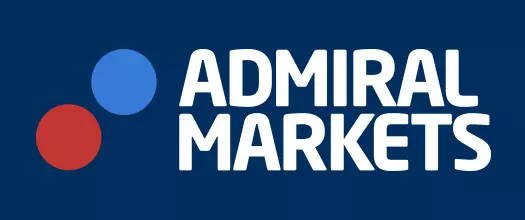 Admirals Admirals | MetaTrader 4, MetaTrader 5, StereoTrader | CIRO (Canada), CySEC (Cyprus, # 201/13), EFSA (Estonia, # 4.1-1/46), FCA (United Kingdom, # 595450), FSAS (Seychelles, # SD073), FSCA (South Africa, # FSP51311), JSC (Jordan, # 1/3/01970/21), ASIC (Australia, # 410681), CMA (Kenya, # 178) | |
Admirals FX Spreads vs Industry AverageThere might be additional fees corresponding with this account type. ** Last update - 2025-05-21 11:53:24 UTC | |||
38 | MetaTrader 4, MetaTrader 5 | CySEC (Cyprus, # 164/12), SVGFSA (Saint Vincent and the Grenadines, # 1278), FSCM (Mauritius), BaFin (Germany, # 10161686) | |
Libertex FX Spreads vs Industry AverageThere might be additional fees corresponding with this account type. ** Last update - 2025-12-01 17:10:37 UTC | |||
39 | MetaTrader 4, MetaTrader 5, Proprietary Web, TradingView | CONSOB (Italy, # 211), FCA (United Kingdom, # 434413), SCB (Bahamas, # 199667 B), CMVM (Portugal, # 433), FSCM (Mauritius, # GB24203277), CVM (Brazil, # 43050.917/0001-03) | |
ActivTrades FX Spreads vs Industry AverageThere might be additional fees corresponding with this account type. ** Last update - 2025-08-12 16:45:12 UTC | |||
40 | MetaTrader 4, MetaTrader 4 MultiTerminal, MetaTrader 5, Proprietary Mobile, Proprietary Web | CFTC (United States, # 0516820), CySEC (Cyprus, # 120/10), DFSA (United Arab Emirates, # F003484), FSCA (South Africa, # 49976), IFSC (Belize, # 000261/27), FSCM (Mauritius, # GB23202700) | |
XM Group FX Spreads vs Industry AverageThere might be additional fees corresponding with this account type. ** Last update - 2025-11-19 12:29:42 UTC | |||
41  Markets.com Markets.com | MetaTrader 4, MetaTrader 5, Proprietary Web, TradingView | CySEC (Cyprus, # 092/08), FSCA (South Africa, # 46860) | |
Markets.com FX Spreads vs Industry AverageThere might be additional fees corresponding with this account type. ** Last update - 2025-05-21 09:09:54 UTC | |||
42  Swissquote Swissquote | CFXD, MetaTrader 4, MetaTrader 5, Swissquote Live Platfrom | CySEC (Cyprus, # 422/22), DFSA (United Arab Emirates, # F001438), FCA (United Kingdom, # 562170), FINMA (Switzerland), FSCA (South Africa, # 2011/146594/07 (FSP 43908)), MAS (Singapore, # 201906194G), MFSA (Malta, # C57936), HKSFC (Hong Kong, # AZV127) | |
Swissquote FX Spreads vs Industry AverageThere might be additional fees corresponding with this account type. ** Last update - 2025-05-21 11:47:32 UTC | |||
43 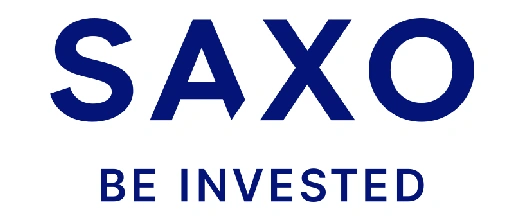 Saxo Bank Saxo Bank | TradingView, SaxoInvestor, SaxoTraderGO, SaxoTraderPRO | CONSOB (Italy, # 296), FCA (United Kingdom, # 207519), FFAJ (Japan), JFSA (Japan, # 8010401082810), MAS (Singapore, # 200601141M), DFSA (Denmark, # 1149), HKSFC (Hong Kong, # AVD061), ASIC (Australia, # 280372) | |
Saxo Bank FX Spreads vs Industry AverageThere might be additional fees corresponding with this account type. ** Last update - 2025-05-21 08:44:32 UTC | |||
44  Interactive Brokers Interactive Brokers | Proprietary Mobile, Proprietary Web | CFTC (United States, # 0394039), CIRO (Canada), FCA (United Kingdom, # 208159), JFSA (Japan, # 187), MAS (Singapore, # CMS100917), HKSFC (Hong Kong, # ADI249), ASIC (Australia, # 453554), SEBI (India, # INZ000217730), CBI (Ireland, # C423427) | |
45 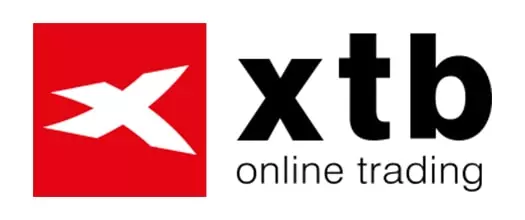 XTB XTB | xStation 5 | CNMV (Spain, # 40), CySEC (Cyprus, # 169/12), DFSA (United Arab Emirates, # F006316), FCA (United Kingdom, # 522157), FSCA (South Africa, # 49970), FSAN (Norway, # FT00118162), IFSC (Belize, # 000302/11), KNF (Poland), BaFin (Germany) | |
XTB FX Spreads vs Industry AverageThere might be additional fees corresponding with this account type. ** Last update - 2025-05-21 07:45:41 UTC | |||
46 | MetaTrader 4, TradeCopier | CySEC (Cyprus, # 125/10), FCA (United Kingdom, # 585561), FSCA (South Africa, # 45276) | |
Iron FX FX Spreads vs Industry AverageThere might be additional fees corresponding with this account type. ** Last update - 2025-05-30 10:15:35 UTC | |||
47 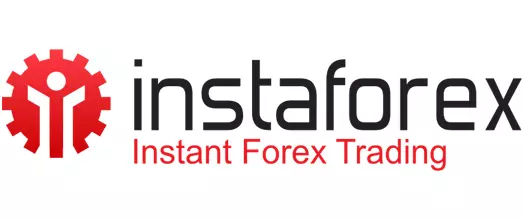 InstaForex InstaForex | MetaTrader 4, MetaTrader 5, Proprietary Mobile, Proprietary Web | CySEC (Cyprus, # 266/15), SVGFSA (Saint Vincent and the Grenadines, # 24321), BVIFSC (Virgin Islands, British, # SIBA/L/14/1082) | |
InstaForex FX Spreads vs Industry AverageThere might be additional fees corresponding with this account type. ** Last update - 2025-11-05 12:05:08 UTC | |||
48 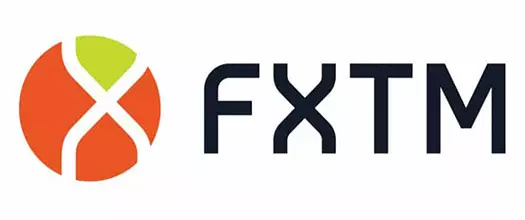 FXTM FXTM | MetaTrader 4, MetaTrader 5 | CMA (Saudi Arabia, # 135), FCA (United Kingdom, # 777911), FSCA (South Africa, # 50320), FSCM (Mauritius, # C113012295) | |
FXTM FX Spreads vs Industry AverageThere might be additional fees corresponding with this account type. ** Last update - 2025-12-01 14:07:16 UTC | |||
What is forex and how does the forex market operate?
Definition and everyday example
- Forex (foreign exchange) is the global market where currencies are traded.
- Currency exchange underpins international travel and trade. Example: a US traveller buying in Italy must convert USD to EUR.
How the market operates
- Fully decentralised and electronic (OTC) — there is no central exchange; trades route through global computer networks.
- Open 24 hours a day, five days a week, rolling across financial centres: Tokyo, New York, Zurich, Hong Kong, Paris, Sydney and Singapore.
- As one region closes, another opens, keeping activity continuous and prices moving.
Size and liquidity
- The largest and most liquid financial market.
- Estimated market value around $2.73 quadrillion (up from $1.93 quadrillion in 2019).
- Daily trading volume approximately $7.51 trillion.
Who trades and how accessible it is
- Participants include banks, hedge funds, institutions, central banks, high-net-worth individuals and retail traders.
- Internet platforms let individuals buy or sell currencies with a few taps from almost anywhere.
What drives prices
- Core driver: supply and demand.
- When demand for a currency exceeds supply, its price tends to rise.
- When supply exceeds demand, its price tends to fall.
- Influences include central-bank policy, economic data, geopolitics and market sentiment.
Trading flexibility and approach
- You always trade one currency against another.
- If you expect EUR weakness, you can sell EUR and buy USD; if you expect EUR strength, you can buy EUR and sell USD.
- Outcomes reflect decisions to buy, sell or wait — not luck.
Volatility and leverage
- Volatility varies by pair and conditions; 1%+ daily moves are common in active periods.
- Leverage can be high (in some jurisdictions up to 1:1000), amplifying gains and losses.
- Positions can be held for minutes or days, depending on strategy, risk tolerance and conditions.
- Deep liquidity and 24/5 access make forex suited to leveraged trading, but risk rises accordingly.
Market structure and pricing
- Currency prices ultimately reflect fundamental forces of supply and demand.
- The market’s decentralised, global scale and liquidity make large-scale manipulation highly unlikely.
Currencies landscape
- Around 180 currencies are legal tender worldwide, but only a subset trades in large volumes.
- The most traded are tied to stable, liquid economies. The US dollar is the most traded currency globally.
- Commonly traded top ten: USD, EUR, CHF, NZD, GBP, JPY, CAD, Chinese renminbi, Hong Kong dollar, AUD.
Choosing the best forex broker
According to the most recent data, the foreign exchange market has an average volume of around $7.51 trillion per day, making it the largest financial market globally. Due to its decentralised nature, traders are free to select from numerous online brokers and can choose a brand they feel comfortable with. However, many people face the dilemma of which broker to choose and how to ensure the one they pick is reliable. Selecting the right firm requires sifting through a large number of options. Here are some of the things you need to take into consideration when choosing a forex broker.
Regulatory compliance
Every reputable forex broker should apply for a licence or register with the regulatory bodies governing forex activities in the region where the broker wishes to operate legally. For instance, any trustworthy forex broker operating in the US should seek membership in the NFA (National Futures Association) or register with the CFTC (Commodity Futures Trading Commission). The former is a self-regulatory, industry-wide organisation monitoring the futures trading industry in the USA. It develops programmes, regulatory rules and guidelines that share one common goal: to protect traders, investors and the financial market. The latter is an independent government agency that regulates the commodity options and futures markets. Its main mission is to protect participants in the financial market from fraud.
Tier 1 Regulators
Tier 2 Regulators
Leverage and margin
Forex traders have access to leverage ratios of varying values that depend on the broker’s policy as well as regulatory restrictions. Forex pairs can usually be traded with maximum leverage between 1:20 and 1:1000, or even higher in some jurisdictions. Due to regulatory limitations, forex brokers operating in the US cannot offer leverage higher than 1:50 to retail traders. Simply put, leverage can be considered a loan extended to margin-account holders by the brokers. If this sounds too complicated, here is a practical example. If you use leverage of 1:50 and have $2,000 available in your account, you can hold a position valued at $100,000. Leverage may work in favour of the trader who wishes to boost potential returns, but one must be careful because it can also exhaust the balance rapidly.
Commissions and spreads
All brokers charge fees for the services they offer. These surcharges include spreads and commissions. Brokers may apply both spreads and commissions to forex trades, profiting from each type of fee. However, it is common for brokers to impose zero commissions on trades and instead increase the spread applied to forex orders. While paying no commissions may sound better to the inexperienced trader, those who calculate the total cost of trading will quickly see that a small commission with a tighter spread often results in a lower overall fee.
Order execution quality
The efficiency and reliability of order execution are also critical when choosing a forex broker. High-quality execution means your orders are filled promptly, at or near the expected price, without unnecessary delays or slippage. Brokers with solid execution use advanced technologies and routing systems to ensure trades are completed quickly and accurately, minimising the difference between the requested price and the actual execution price.
This reduces trading costs and enhances your ability to capitalise on market movements. When evaluating brokers, consider metrics such as execution speed, fill rates and price-improvement statistics, which indicate how often trades are executed at better prices than the quoted market rates. Reliable order execution can significantly impact your long-term results, especially in fast-moving markets.
Initial deposit
Most forex accounts can be funded with very small sums, so there is no need to be a millionaire to gain market exposure. As a matter of fact, all you need is about $50 to fund your trading account – in some cases even less. The exact minimum deposit varies across brokers and account types. Some brokers have gone as far as setting no minimum limit to activate a trading account. That said, you are advised to have at least $1,000 in your account if you want to place a few decent orders.
Customer service
Customer service is also something you should not underestimate when choosing a forex broker. Ensure you will have proper 24/7 support at your disposal. Different communication channels are also appreciated, as they allow traders to resolve any problems quickly during trading sessions.
Trading platform
Last but not least, check the range of available trading platforms. Most platform solutions boast a user-friendly interface, so it will take you no time to master the quickest way to access markets and orders. That said, forex platforms vary in style and functionality, so it might be a good idea to try several via a demo account until you find the one that matches your needs.

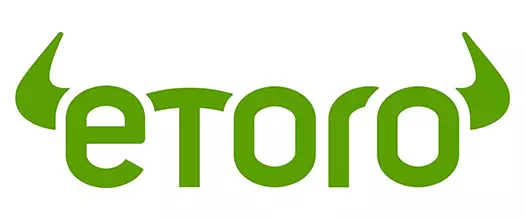
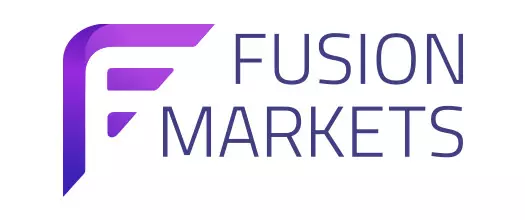
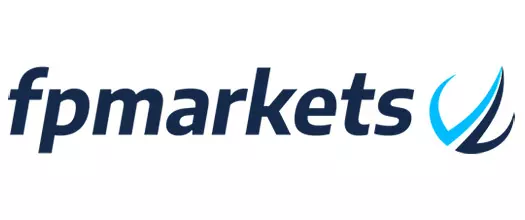
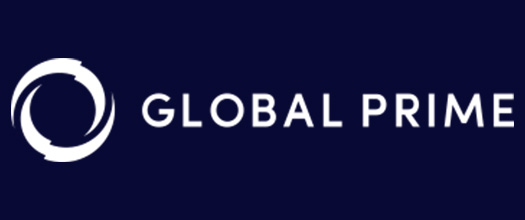

 4.9
4.9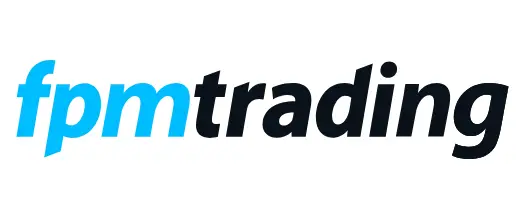 FPM Trading
FPM Trading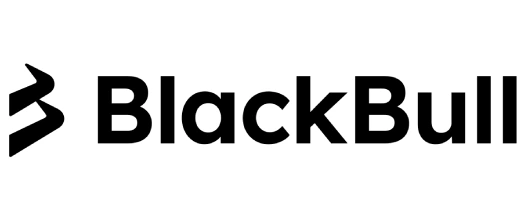 BlackBull Markets
BlackBull Markets AvaTrade
AvaTrade 4.7
4.7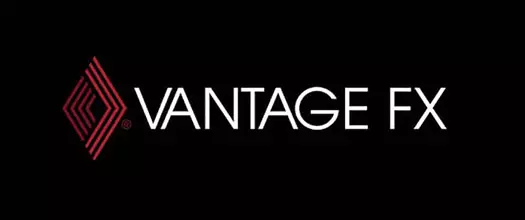 Vantage
Vantage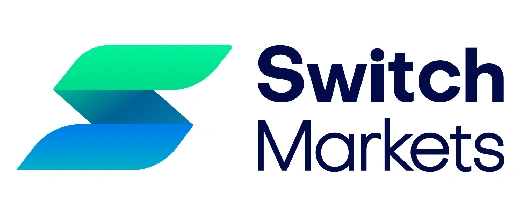 Switch Markets
Switch Markets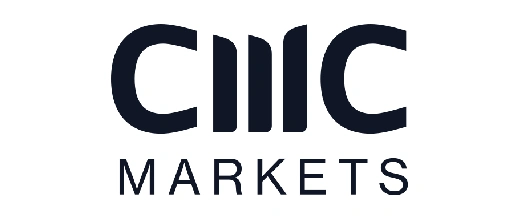 CMC Markets
CMC Markets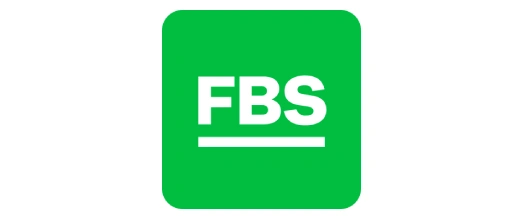 FBS
FBS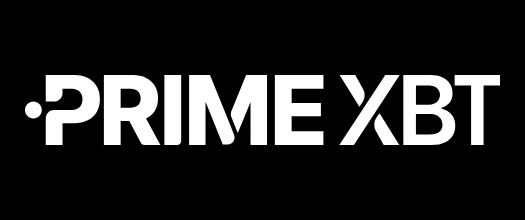 PrimeXBT
PrimeXBT 4.2
4.2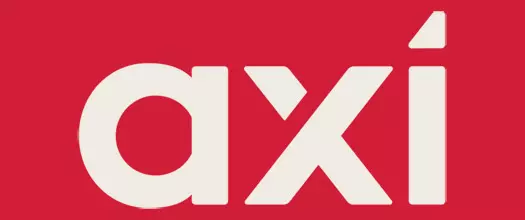 Axi
Axi Plus500
Plus500 Eightcap
Eightcap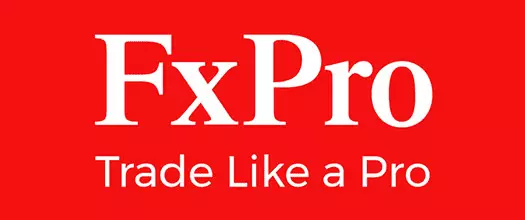 FxPro
FxPro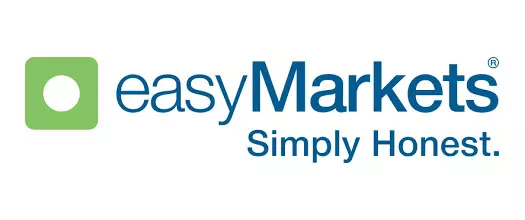 easyMarkets
easyMarkets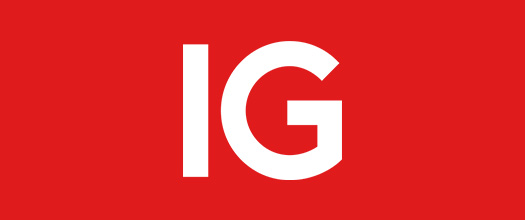 IG
IG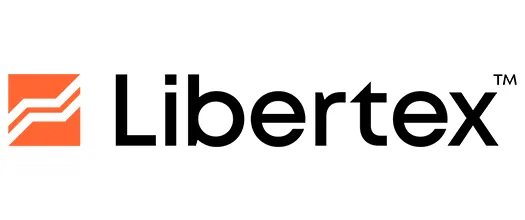 Libertex
Libertex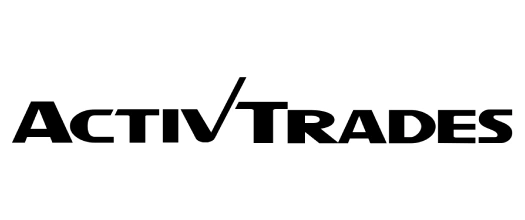 ActivTrades
ActivTrades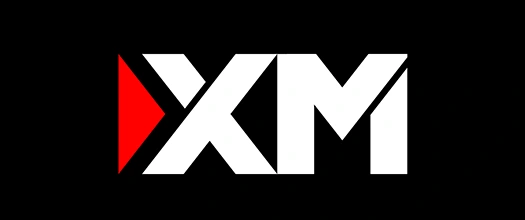 XM Group
XM Group 3.7
3.7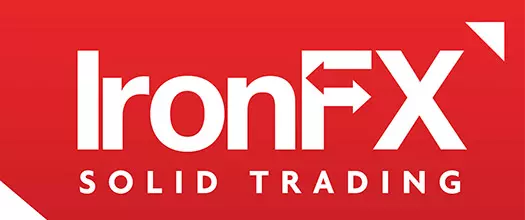 Iron FX
Iron FX 2.7
2.7